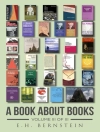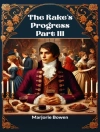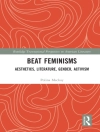This book investigates how writers and readers of Renaissance literature deployed ‘kinesic intelligence’, a combination of pre-reflective bodily response and reflective interpretation. Through analyses of authors including Petrarch, Rabelais, and Shakespeare, the book explores how embodied cognition, historical context, and literary style interact to generate and shape responses to texts. It suggests that what was reborn in the Renaissance was partly a critical sense of the capacities and complexities of bodily movement. The linguistic ingenuity of humanism set bodies in motion in complex and paradoxical ways. Writers engaged anew with the embodied grounding of language, prompting readers to deploy sensorimotor attunement. Actors shaped their bodies according to kinesic intelligence molded by theatrical experience and skill, provoking audiences to respond to their most subtle movements. An approach grounded in kinesic intelligence enables us to re-examine metaphor, rhetoric, ethics, gender, and violence. The book will appeal to scholars and students of English, French, and Italian Renaissance literature and to researchers in the cognitive humanities, cognitive sciences, and theatre studies.
Содержание
.- 1 Introduction.- 2 Chiastic Cognition: Kinesic Intelligence Between the Reflective and the Pre-Reflective in Montaigne and Scève.- 3 Turning Toward the Beloved (Virgil, Petrarch, Scève).- 4 Scève’s Denominal Verbs.- 4 Metaphor, Lexicography, and Rabelais’s Prologue to Gargantua.- 4 The Gunpowder Revolution in Literature: Early Modern Wounds in Folengo and Rabelais.- 6 The Finger in the Eye: Jacques Duval’s Traité des Hermaphrodits (1612).- 7 Exchanging Hands in Titus Andronicus.- 8 “Cabin’d, Cribb’ed, Confin’d”: Images of Thwarted Motion in Macbeth.- 9 Shakespeare’s Vital Signs.- 10 Kinesic Intelligence on the Early Modern English Stage.- 11 Afterword: How Do Audiences Act?.
Об авторе
Kathryn Banks is Associate Professor of French at Durham University, UK. She is the author of Cosmos and Image in the Renaissance (2008) and has published essays on Rabelais, sixteenth-century poets, apocalyptic writing, Chrétien de Troyes, and cognitive approaches to literature. She was awarded a Philip Leverhulme Prize in 2013.
Timothy Chesters is University Lecturer in Sixteenth-Century French Studies and a Fellow of Clare College, Cambridge, UK. He is the author of Ghost Stories in Late Renaissance France: Walking by Night (2011). He has also published on Rabelais, Ronsard, Montaigne, and Flaubert, and on cognitive approaches to literature.












